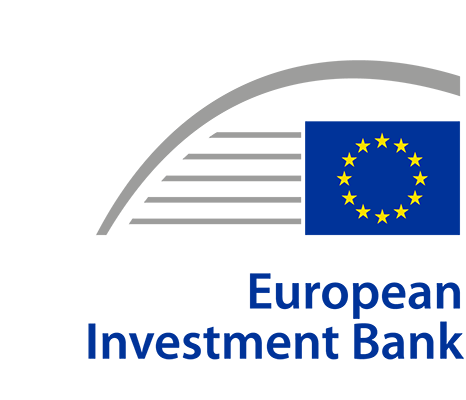The European Commission – Directorate-General for Agriculture and Rural Development (DG AGRI) in partnership with the European Investment Bank (EIB) organised on 6 October 2020 the webinar on ‘Financial needs in the agriculture and agri-food sectors in Austria and the Czech Republic’. Key objective of the webinar was to shed light on the financial environment in which farmers and processors operate in these countries. Close to 100 participants from managing authorities, financial intermediaries, EU institutions and stakeholders from the agricultural and agri-food sectors joined the webinar.
Moderated by Bruno Robino, Head of fi-compass at EIB, the webinar was opened by Michael Pielke, Head of Unit at DG AGRI, highlighting the importance for EAFRD managing authorities to plan and programme the use of financial instruments (FIs) in their CAP Strategic Plans for 2021-2027. With a view to support the managing authorities in their programming exercise, fi-compass has recently published a study on financial needs in the agriculture and agri-food sectors in 24 EU Member States. As indicated by Mario Guido, Financial Instruments Advisor at EIB, the study aims to raise awareness on the use of EAFRD financial instruments in the post 2020 CAP to help address the financial gap in the agriculture and agri-food sectors.
Manfred Watzinger from the Austrian Federal Ministry of Agriculture, Regions and Tourism, informed about the preparation of the future CAP Strategic Plan for Austria, kicked-off in May 2019 and involving in the discussions public and environmental authorities, economic and social partners and bodies representing the civil society.
Hans Kordik, Research Expert at Ecorys, introduced the findings from the fi-compass study ‘Financial needs in the agriculture and agri-food sectors in Austria’. The estimated gap in agri-food sector is up to EUR 175 million and attributed mainly to small enterprises with difficulties in accessing long-term investment loans. The key gap drivers identified include, inter alia, the lack of collateral discouraging credit institutions to grant loans, final recipients’ limited financial knowledge and low equity ratios seen mostly in the case of small-sized enterprises and start-ups. On the other hand, the findings from the preparatory ex-ante assessment for the potential use of EAFRD financial instruments in the next period, presented by Bernd Schuh, Executive Director of the Austrian Institute for Regional Studies, showed that a broader perspective on rural development has been taken into account and that FIs shall be more flexible to respond to the complexity of the rural economy and coverage of the rural development policy, including agricultural sector.
Kurt Leutgeb, Head of Guarantees, Equity at Austria Wirtschaftsservice Gesellschaft (aws), presented the available financial products and financial instruments for agriculture and agri-food sectors offered by aws, Austria’s federal promotional bank for business financing. At this moment, guarantees provided by aws have the widest impact in the realisation of projects, not only in the agri-food, but also in the agriculture sector which previously was not supported. Changes in the design of the guarantees was also required and their coverage has been increased to up to 100% following certain legal flexibilities and under national schemes, introduced due to the Covid-19 health crisis. The number of guarantees provided since March 2020 is significant: 588 guarantees in total for a guarantee volume of approximately EUR 110 million split into 246 guarantees for the agriculture sector (EUR 35.2 million) and 342 guarantees (EUR 74.8 million).
Alena Kubu, Head of Unit for Strategies, analyses, monitoring and evaluation at the Ministry of Agriculture of the Czech Republic, explained the progress of the EAFRD managing authority with the preparation of the post 2020 Cap Strategic plan and the potential use of FI based on the first insights from the ex-ante assessment, which was conducted in three phases:
- Phase I consisted in the analysis of documentation and subsequent recommendations;
- Phase II focused on the proposal for a FI to be usedin the 2021-2027 CAP plan;
- Phase III entailed the consultancy for the implementation of the FI, including an update of evaluation outputs (2020-2024).
Czech Republic ex-ante assessment highlighted an important financial gap in the agriculture sector alongside with insufficient budget for investments.
Mario Guido, Financial Instruments Advisor at EIB, presented the findings from the fi-compass study ‘Financial needs in the agriculture and agri-food sectors in the Czech Republic’. The financing gap in the Czech Republic in agriculture is estimated to range between EUR 95 and EUR 217 million, concerning young farmers (17%) whereas the gap for agri-food sector is estimated at around EUR 578 million, affecting mainly small enterprises in the manufacturing of bakery and farinaceous products.
The main gap drivers in agriculture and agri-food sectors include, inter alia, the lack of collateral, the final recipients’ lack of financial awareness and credit history, the limited availability from the supply side (banks) of loans at favourable terms, and the sectors’ high investment risk perceptions by banks.
Michael Pielke closed the webinar by underlining that examples presented during the event, as well as the findings from the studies on the financial gaps in the agriculture and agri-food sectors in Austria and the Czech Republic demonstrate, not only, how FIs supported by the EAFRD could help tackle the current financial difficulties, but also how they could encourage banks and private investors to co-invest in the agriculture and agri-food sectors.
![]() presentation
presentation
![]() audio
audio
![]() video
video
![]() case study
case study
The audio in the video files is in original language of the speakers. The English interpretation is available as audio files.



